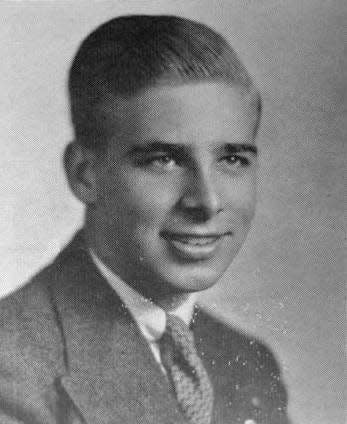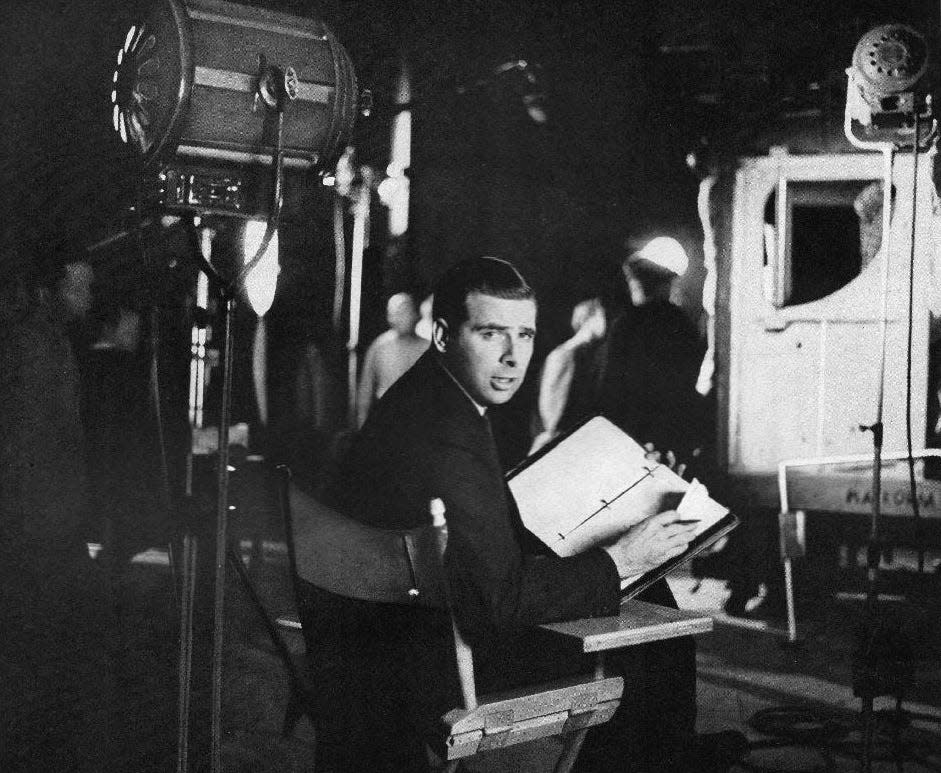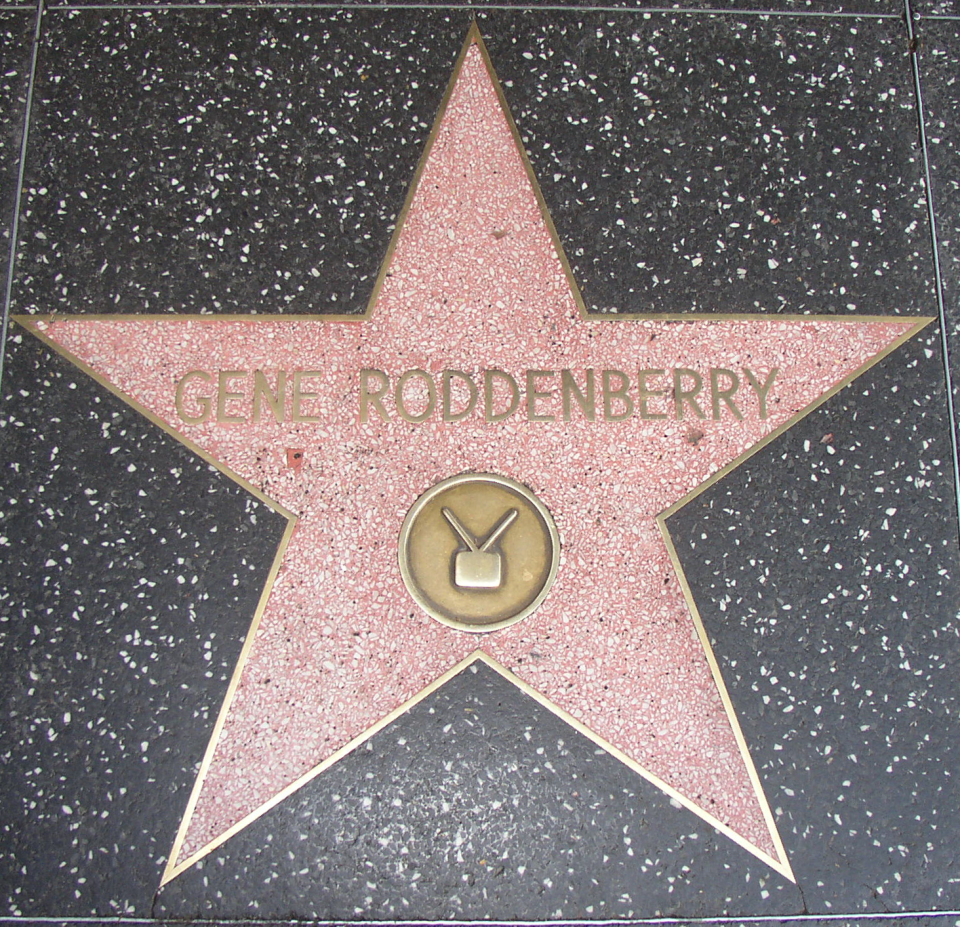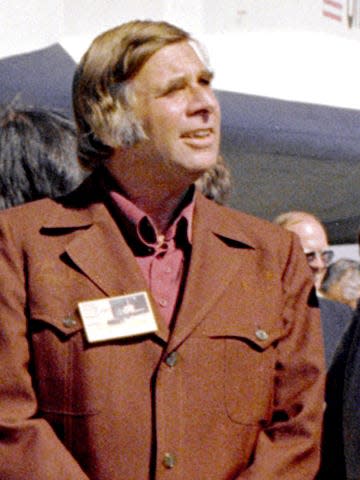Texas History Minute: Gene Roddenberry, the writer behind Star Trek
- Oops!Something went wrong.Please try again later.
- Oops!Something went wrong.Please try again later.
Texas has been home to many imaginative scientists, artists, and writers. Because of their dreams and determination, they changed how people saw the world. One Texas writer in particular, Gene Roddenberry, created one of the most successful science fiction stories today, Star Trek.
Born Eugene Wesley Roddenberry in El Paso in 1921, he was the eldest child in a Southern Baptist family. In 1923, his father accepted a position at the Los Angeles Police Department, and the family left Texas for California.
As a child, Roddenberry was very imaginative. He loved reading science fiction and had fair grades in school. He considered following in his father’s footsteps and began taking criminal justice courses when he later enrolled at Los Angeles City College. However, the approach of World War II shifted his focus.

Increasingly interesting in aviation, he began taking flight lessons through the military’s Civilian Pilot Training Program. He earned his pilots license and enlisted in the Army Air Corps less than two weeks after Pearl Harbor. He became a B-17 bomber pilot with the Thirteenth Air Force, based out of Hawaii. He earned a Distinguished Flying Cross and rose to the rank of captain.
After the war, Roddenberry worked for Pan Am Airways as an international pilot. In 1947, his Lockheed L-049 crashed in Syria. He suffered two broken ribs in the crash. As the plane caught fire, he worked to pull as many injured passengers from the wreckage as he could. Fifteen passengers died, but he saved many others, and led the survivors through the desert to find help. He flew for Pan Am for another year before resigning to pursue his dreams of being a writer.
Success did not come easily. Having difficulty earning a living to support his wife and young children, he joined the LAPD in 1949. Using his police experience, he soon became a technical advisor for the early drama Mr. District Attorney, for which he also wrote the occasional episode. He later worked as a writer for Highway Patrol. He was also selling scripts for popular westerns as well. He was doing so well that he resigned from the police force in 1956.
In 1958, he started writing for the popular westerns Bat Masterson and Have Gun – Will Travel. He won an award from the Writer’s Guild of America for an episode of the latter that year. Roddenberry tried to develop several different television series, but he had difficulty selling any to the networks. In 1963, NBC picked up his series The Lieutenant, a drama about the lives of Marines starring Gary Lockwood and Robert Vaughan that ran for only one season.

Roddenberry began developing a new science fiction series in 1964 that ultimately became Star Trek. Networks were hesitant, but Roddenberry pitched it as a futuristic western based on a starship. CBS rejected the series outright, but NBC was interested. The pilot episode that emerged, The Menagerie, starring Jeff Hunter as Captain Pike, Leonard Nimoy as Mr. Spock, and Roddenberry’s future wife, Majel Barrett, did not impress the network. Executives feared the theme of aliens, ESP, and an interracial crew would not sit well with audiences. However, they enjoyed the concept of the program and ordered it revamped.
Roddenberry complied, keeping Nimoy and bringing in William Shatner to play Captain James T. Kirk. The second pilot aired in 1966, and the program immediately developed a steady following of fans. Roddenberry kept the show focused on morality plays and allegories of the current events of the 1960s. Overall, he based the series on his idea of a utopian future for humanity, one where war, poverty, crime, and disease had ended and all races worked together as equals. This hopeful view of the future attracted many fans looking for an escape from the chaotic and violent events of the decade. However, ratings were low; and Roddenberry often clashed with network executives. The series was nearly cancelled in 1968, but a letter-writing campaign allowed Star Trek to proceed to a third season.

After the series was cancelled in 1969, Roddenberry’s personal life was a mess. His marriage had fallen apart, and he had several affairs. He ultimately divorced and remarried. He tried to develop several other science fiction series and movies but none was ever particularly successful.
Star Trek’s popularity continued to grow after its cancellation. In 1976, NASA invited the cast to the unveiling of the space shuttle prototype, called Enterprise as the result of a writing campaign. By the late 1970s, he entered discussions to revive Star Trek as a television series, but the unexpected success of Star Wars in 1977 led studio executives to push for a movie version instead.
The Star Trek movie premiered in 1979. Three more movies followed in the 1980s, leading to an updated version of the series with a new cast, Star Trek: The Next Generation, in 1987. Several more series would emerge in the following decades.

He died of a heart attack at his doctor’s office in Los Angeles in 1991. As a final salute to the science fiction pioneer, a portion of his ashes were flown aboard a flight of the Space Shuttle Columbia in 1992. Though many of his other works have been largely forgotten, Star Trek has become a billion-dollar franchise from TV shows, merchandising, and movies.

Ken Bridges is a Texas native, writer and history professor. He can be reached at drkenbridges@gmail.com. The views and opinions expressed here are the author’s own and do not necessarily reflect those of the Herald Democrat.
This article originally appeared on Herald Democrat: Texas History Minute: Gene Roddenberry, the writer behind Star Trek

